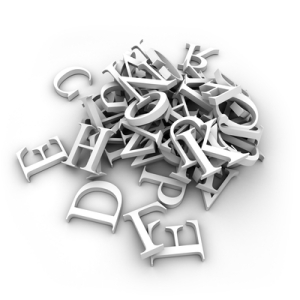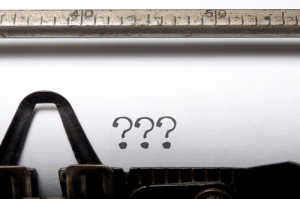 As I noted a few posts ago, in his article “The Phenomenology of Error,” Joseph Williams categorized errors by type. Among his more interesting categories, in my view, were those errors that the experts make even as telling us not to (and nobody notices). He also had a category of grammatically correct constructions that sound so odd when we use them that we generally prefer the error.
As I noted a few posts ago, in his article “The Phenomenology of Error,” Joseph Williams categorized errors by type. Among his more interesting categories, in my view, were those errors that the experts make even as telling us not to (and nobody notices). He also had a category of grammatically correct constructions that sound so odd when we use them that we generally prefer the error.
These categories change with time, since language and usage do, of course. But his discussion of them made me think about the kinds of errors we can and maybe should ignore and, in fact, the kinds of rules we should ignore.
Here are three of my “rules I can ignore” (if I want to). Do you agree with me on these? What are yours?
The “that/which” distinction.
Okay, I don’t ignore it, but from what I’ve seen, a whole lot of people do. It’s the one Jacques Barzun didn’t catch himself ignoring, as Williams documents. It depends on knowing the difference between a restrictive and nonrestrictive (or an essential versus nonessential) adjective clause (which you can read about here), and yes, I’m using “which” correctly here:
The house, which had just been painted and re-roofed, sat on a cozy cul-de-sac. (Nice info but you could lift if out and not miss it.)
The house that had the new paint and new roof was the best deal of the three. (Allows you to distinguish the best deal from the others; take it out and see how much is lost.)
The point is, only a very few termagants (like me) would even notice if you replaced the “that” in the second sentence with “which.”
The “whom” challenge.
I call this a challenge because the error is a lot less noticeable when people commit it than when they try to get it right and get it wrong. Simply speaking, only the above referenced termagant will rage if you just use ‘who” ninety-nine percent of the time.
After all, doesn’t it sound more natural to say, “Who did you give that to?” than “Whom did you give that to?” The “whom” in the second is correct because it’s the object of the preposition “to” and objects have to be in the objective case (like “him,” “her,” “us,” and “me”). But our minds these days just aren’t trained to worry about all such distinctions.
A sign of our downfall? Actually, putting that “m” on “who” is an “inflection,” and English has been discarding inflections when they don’t really add any information for centuries.
Actually, the only time most people will want the “whom” form is when it directly follows its preposition, and that usually happens in a question that’s been re-ordered: “To whom did you give it?” “With whom were you going?” “For whom did you buy that hat?” Do you have to write these particular sentences? In my view, not unless you feel compelled.
The problem arises when people assume that because “whom” sounds so much more formal, it is compelled whenever one wants to sound formal. So I’ve actually encountered sentences like “Whom is going with us?” Ouch, that really grates.
The messier—and understandably more confusing—situation occurs when the who/whom pair has to be sorted out at the beginning of a dependent clause acting as an object. The handbook rule is that you choose “who” or “whom” depending on what it’s doing in its own clause, not in the larger sentence.
“Did you say who is going with us?” (correct) and “Did you say whom the hat is for?” (again correct–note that little preposition “for” controlling the choice). But “hypercorrectness”—going gaga over sounding upmarket—leads to “Did you say whom is going with us?” As a sort of sub-termagant, I submit that more than a few of the erudite people writers hope to impress WILL notice that one (though I’m willing to be corrected).
In my view, you should go ahead and make the “mistake” of the perfectly natural-sounding “Did you say who the hat is for?” and just kick “whom” out of your vocabulary rather than sticking it where it doesn’t belong (here’s a wise soul who agrees!).
Singular “they.”
This one is a lost cause. It’s been a lost cause, according to Dennis Baron of the Web of Language, just about forever. English simply has no singular, gender-neutral pronoun—except “it,” of course; just try choosing “it” in this sentence: “Everybody should bring his/her/its lunch to the meeting.”
The conundrum, of course, is that “everybody” wants so badly to be singular; we say “everybody is,” not “everybody are.” Certain people who shall not be named think there’s really no problem. Just pick “his,” and who’ll care? After all, everybody is a “he,” n’est-ce pas?
For quite a while, “he” and “his” were the preferred options among those who got to do the published writing. Because more kinds of people get to do published writing now, the masculine singular won’t do. As Baron points out, efforts to creatively solve this problem of a singular “antecedent” with no acceptable gender-neutral singular pronoun have gone nowhere.
And “his or her” (or “her or his”), the only option that is even remotely close to acceptable, gets old in a hurry (“Everybody should open his or her notebook and take out his or her homework. . . .”). Baron writes that Vanderbilt University has actually declared singular “they” perfectly acceptable in its formal documents. So ignore this baby at will.
Those are a few of the rules I think we should ignore a) because people notice them less and less and often never; and b) trying to follow them results in sentences that will offend even people with certified tin ears.









Thannks for sharing this
LikeLiked by 1 person
You’re welcome!
LikeLike
Pingback: The Verb “To Be” Is Your Friend | Just Can't Help Writing
Pingback: An Oldie but Goodie: 10 Things Writers Don’t Tell People | Just Can't Help Writing
These are tough decisions and it depends on the circumstances. In a blog, I probabably am less cautious. But a novel requires more precision and an academic article even more so. Part of me says, why bother? The realistic me says don’t give the assholes a reason to bring up a superfluous distraction in a review.
LikeLike
I agree completely. Context dictates my choices. Academic articles are far and away the most rigid—an ironic situation given that in my field, “rhetoric and composition,” (the teaching of college writing), people downplay the importance of prescriptive grammar rules while adhering ferociously to them! And you never can tell when you’ve pushed some editor’s grammar button. Mine is dangling modifiers (I included that in my post of grammar rules that we should just maybe be “on the fence” on since they’re so ubiquitous!
LikeLike
Thanks, Virginia, for this helpful information.:)
LikeLike
You’re welcome. Hope it’s helpful!
LikeLike
One rule I’ve seen broken more and more, and one I find easy to break, is “never end a sentence with a preposition.” The consensus seems to be that this is one of those rules that had its roots in Latin and should not have been applied to the English language as a hard and fast rule. I’m glad to see grammarians easing up on this rule, as it can lead so some awkward sentence and dialogue construction.
LikeLiked by 1 person
I posted earlier on “rules” that aren’t really “rules” all, and the ending-sentences-with-a-preposition ban was one of my targets. You should be able to find my complete endorsement of your point here: http://tinyurl.com/nawtyms. Let me know what you think!
LikeLiked by 1 person
Yes, and makes me want to end a sentence with a preposition now! I was going to mention the Churchill quote in my comment, but thought I’d try to keep it short. Great article – and just noticed the horse – something else we have in common.
LikeLike
As I grade the writing of the next generation of communication professionals, it doesn’t seem to me that the problem is a thoughtless devotion to rules. Rather, it’s an ignoring of basic principles of grammar and sentence structure. I wonder why so much attention these days is given to how we editors are being schoolmarmish. You think if we were less pedantic people would pay more attention to us?
LikeLiked by 1 person
I’m finding a different audience among people hoping to publish, especially through traditional routes, where agents and editors are gatekeepers and it’s easy to obsess over what’s going to offend a particular recipient of a query letter. Part of my argument is that we can’t know what’s going to offend and it’s often wiser to break a “rule” than to distort a sentence trying to follow it to the letter. Joe Williams’s point seemed to be that people are more likely to notice “error” if they’re searching for it–but that assumes they know the difference, for example, between “that” and “which.” Do agents care? I expect some do and some don’t. That said, having taught writing at a master’s-granting university for 17 years, I agree wholeheartedly with you that syntax problems often cause much more basic communication difficulties than the use of “they” or the “that/which” distinction.
LikeLike
I often start sentences with “and” or “but.” I’m not picky about colons or semicolons if they make sense in dialogue; if it’s not in dialogue, I’m very picky. (I edit for a living, so I hope this makes some sense. I want to give the writers I work with the variety of options they need to make dialogue sound different and set it off from other potential speakers.) I use “who” at least 90% of the time; the only time I really tend to use “whom” is when I have to write a formal business letter (“To Whom It May Concern”). I tend to use plurals to get around most “singular they” problems, but again, in dialogue I truly don’t care that much.
The only time I have trouble with a “singular they” is if someone is gender-fluid and prefers “they” as his/her pronoun. I’ll do my best to honor that convention, but it’s hard for me to call one singular person (regardless of gender expression) “they.” (One of my cousins expresses themself this way — and no, the spell check didn’t like that at all, even though that is their preferred pronoun.)
LikeLiked by 1 person
On my other blog, College Composition Weekly, I summarized an article from the online journal The Writing Instructor about the conundrums faced by gender-fluid people and institutions like women’s colleges where gender has historically been an important identifier. The summary is at http://tinyurl.com/qeovhu3. I agree with you about the need for flexibility in representing dialogue. It can be fun to play around with different inflections and rhythms!
LikeLiked by 1 person
Thanks so much for your reply, Virginia. 🙂 I’m going to go read the summary right now. 😀
LikeLiked by 1 person
I like your style! Ha ha. The “they” rule bugs me when it’s broken, but I’m actually trying to break it now versus work around it.
LikeLiked by 1 person
I’m such a perfectionist I almost can’t break it. But it’s such an easy and really elegant solution! Baron’s post is really informative about all the efforts to get around the problem. When you read about them, you can sort of see why they fail.
LikeLiked by 1 person
I agree it’s fine to ignore all three of those rules, especially in informal writing, but I’d like to think that all writers understand the rules they’re ignoring. So it’s a choice, not ignorance. I’m quite partial to a comma splice, and have been known to start a sentence with the word ‘and’.
LikeLiked by 1 person
I have a whole bucket of “ands” and “buts” for starting sentences. I’d make that “Rule to ignore #4.” But I, too, like to know the rules other people are likely to get excited about so I CAN choose the register I want to write in. It’s empowering to know, not guess.
LikeLike
The “whom” thing always trips me up, so I tend to just go with “who” 🙂 Great post!
LikeLiked by 1 person
When I was a kid, I’d hear people complain about the name of the quiz show Johnny Carson hosted: “Who Do You Trust?” Now nobody (much) would blink an eye. It’s for the better, I suspect. Can you imagine—”Whom Do You Trust?”? (And don’t you love the double question marks? Ain’t grammar fun?
LikeLiked by 1 person
lol Yes, I always felt “whom” just sounded so pretentious!
LikeLiked by 1 person
You really do have to try to write sentences where you HAVE to use “whom.” Nine times out of ten, “who” works fine (IMHO!).
LikeLiked by 1 person
Interesting article. Everyone whom doesn’t care about grammar, love to ignore that which proves itself to be too restrictive.
LikeLiked by 1 person
Love it (and don’t think I haven’t seen this happen in some surprising places)!
LikeLike
Love these, and so true. After all, grammar and language are in constant evolution. Particularly, I use incomplete sentences at times, when the rhythm of the story need them. Also the their/he/she/it rule that you mentioned drives me crazy all the time. I’m glad I’m not alone!
LikeLiked by 1 person
I used to tell students to use plurals to avoid the singular-they problem, but they never seemed especially concerned. Now that Vanderbilt says it’s okay. . . . :-0
LikeLike
I am not intentionally ignoring but I break many frequently as English is not my first language. I guess using the “ou” where in the USA they only use an “o” is one. I learned to use “ou” in elementary school and it stuck…
LikeLiked by 1 person
If I were writing in French (which I can read fairly well), I’d be lucky not to have the shards of broken rules all over the place! British English uses “ou” a lot where American Englsh uses an “o”: honour, for example, or “colour”–and my spellchecker is very unhappy about those “ou’s.”
LikeLiked by 1 person
Reblogged this on Chris The Story Reading Ape's Blog and commented:
Virginia raises some great points and would love to hear what rules YOU IGNORE 😃
LikeLiked by 2 people
Thanks for the reblog! I’m glad to see others think the way I do about not going nuts over some commonly “broken” rules!
LikeLiked by 1 person
Welcome Virginia – I found the points very interesting 😀
LikeLiked by 1 person